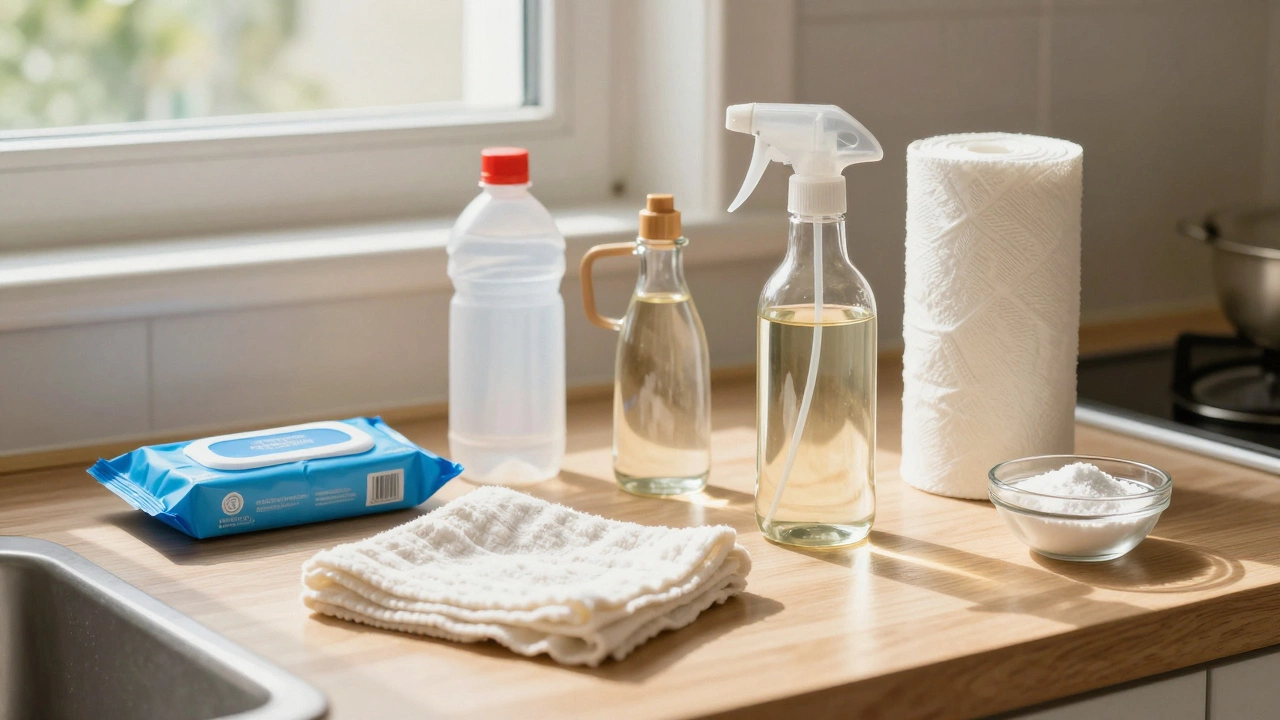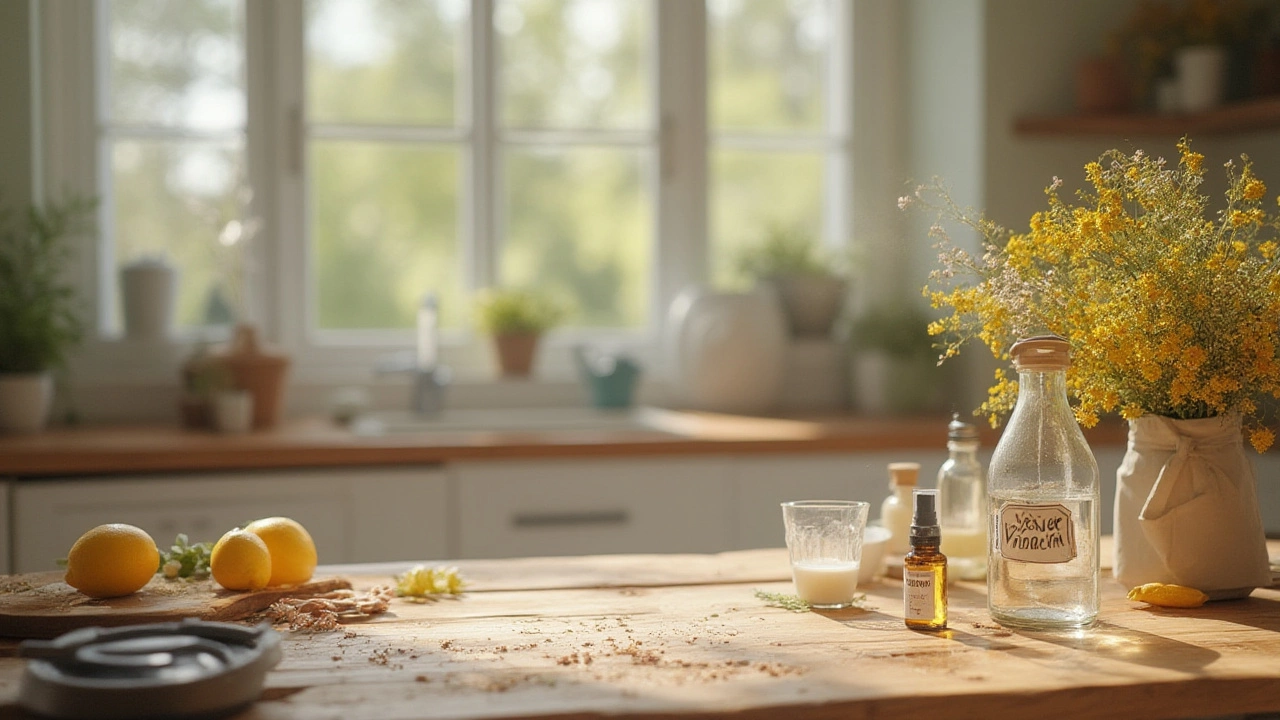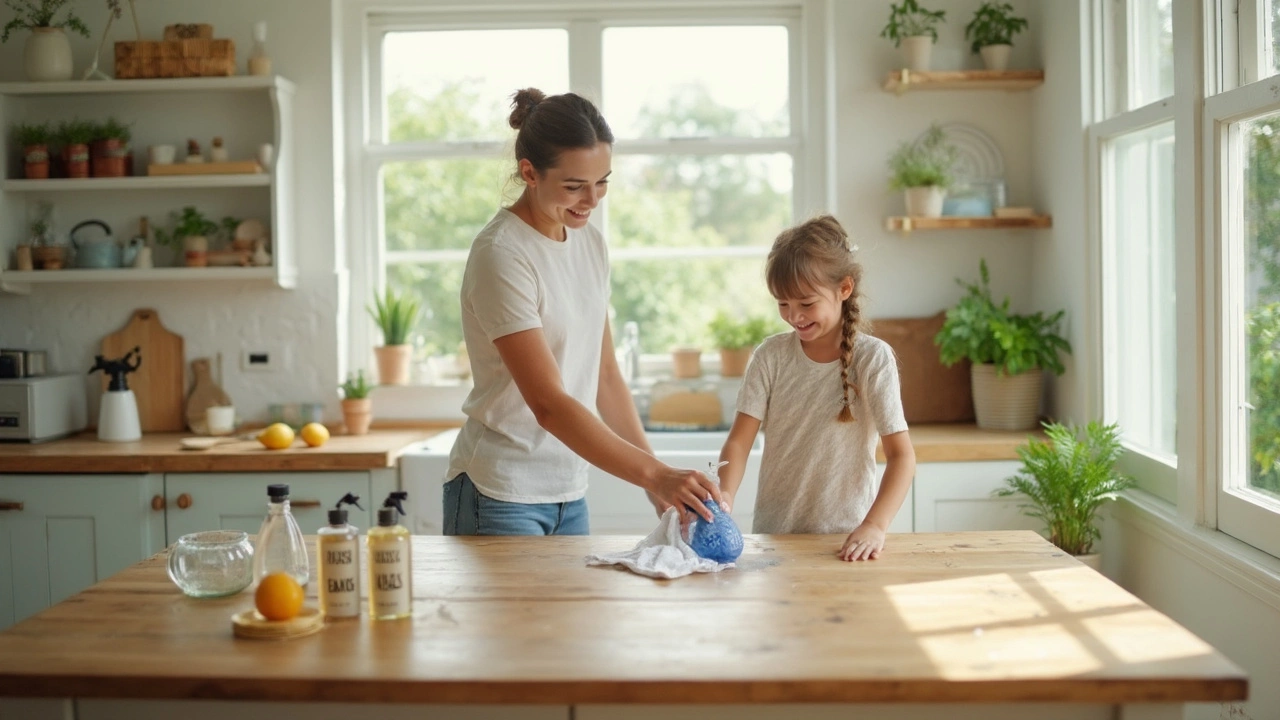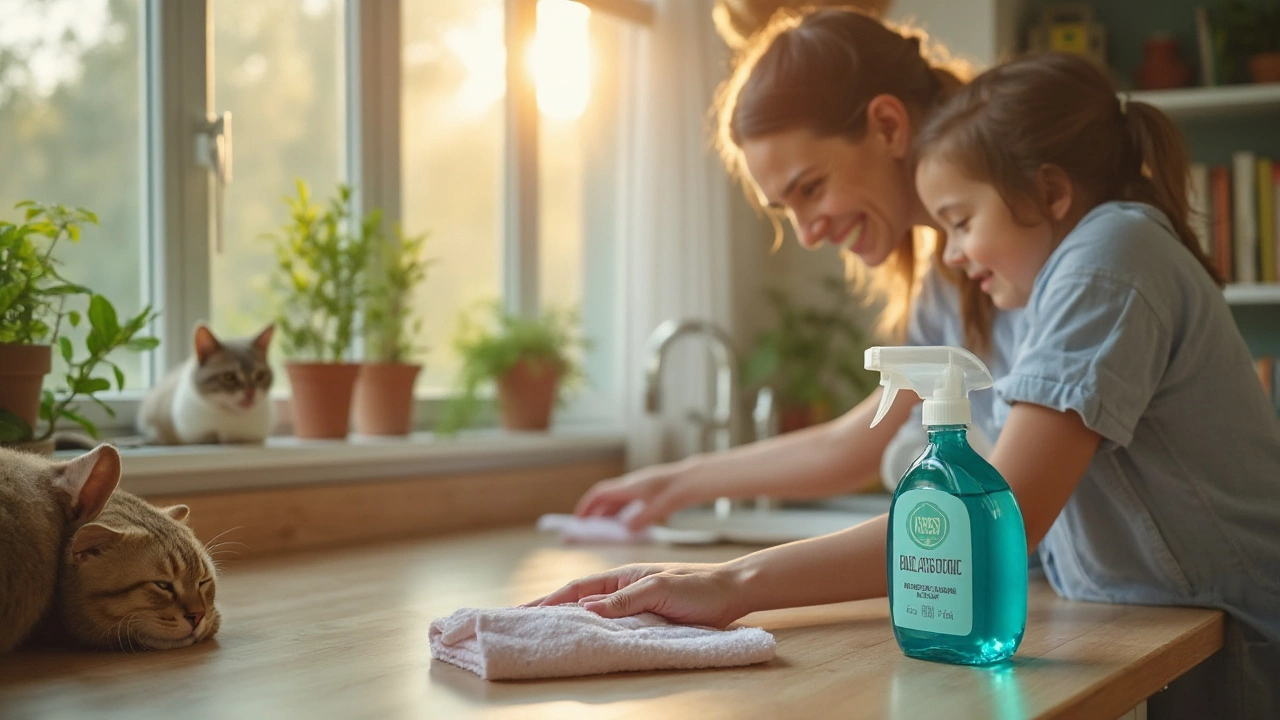Non‑Toxic Cleaners: Safe Picks for a Healthier Home
Ever wonder what’s really in the spray bottle you use every day? Most store‑brand cleaners hide harsh chemicals that can irritate skin, damage lungs, and pollute the water you drink. Non‑toxic cleaners swap those ingredients for safer ones, giving you a fresh space without the hidden risks.
Switching to non‑toxic options isn’t just about avoiding bad smells. It means fewer allergens, less lingering residue on kitchens counters, and a lower chance of accidental poisonings for kids and pets. In short, a cleaner home means a healthier family.
What Makes a Cleaner Non‑Toxic?
A non‑toxic cleaner is any product that avoids listed hazardous substances such as ammonia, chlorine bleach, phosphates, and synthetic fragrances. Instead, it relies on ingredients you might already have in the pantry: vinegar, baking soda, citrus oils, and plant‑based surfactants. These components break down grime without lingering toxicity.
Look for labels that say “biodegradable,” “plant‑based,” or “free from harmful chemicals.” Certifications like EcoLabel or Green Seal give extra confidence that the product has been vetted by an independent body.
How to Choose the Right One for Every Job
Start by matching the cleaner to the surface. For glass and mirrors, a mix of water and a splash of white vinegar works wonders – it cuts streaks and leaves no film. For greasy stovetops, a citrus‑based degreaser or a paste of baking soda and warm water tackles baked‑on residue without scratching.
If you’re dealing with mold or bathroom grime, look for a product that uses hydrogen peroxide or tea tree oil. Both disinfect and break down mould spores naturally. And for upholstery, a simple solution of mild dish soap (like Dawn) plus warm water can lift stains without damaging fabrics.
When you’re not sure, a DIY approach can save money and guarantee safety. Mix one part vinegar with one part water in a spray bottle, add a few drops of essential oil for scent, and you’ve got an all‑purpose cleaner that’s safe for most hard surfaces.
Our team at Dandy Fox Cleaning Services uses only non‑toxic products in every job, from daily home upkeep to deep after‑builders cleans. We’ve seen first‑hand how these cleaners keep homes sparkling while protecting indoor air quality.
Remember, the best non‑toxic cleaner is the one you’ll actually use. Keep the bottles in plain sight, label them clearly, and stick to a routine – a quick wipe down after meals, a weekly bathroom scrub, and a monthly deep clean of floors and carpets.
By choosing safer products, you cut down on hidden chemicals, reduce environmental impact, and support a cleaning industry that cares about health. It’s a small change that adds up to big benefits for you, your family, and the planet.
Ready to make the switch? Start with one room, replace the old spray with a homemade vinegar mix, and feel the difference. You’ll notice less dust, fewer odors, and a home that feels genuinely clean.

How Can I Be 100% Eco-Friendly with Cleaning?
True eco-friendly cleaning isn’t about buying green labels-it’s about cutting plastic, avoiding toxins, and using simple ingredients like vinegar and baking soda. Learn how to clean effectively without waste, chemicals, or single-use products.
Read More
How to Tell If a Cleaning Product Is Really Eco-Friendly
Learn how to spot real eco-friendly cleaning products by checking certifications, ingredients, and packaging. Avoid greenwashing and choose cleaners that are truly safe for your home and the planet.
Read More
Natural All-Purpose Home Cleaners: Safe Ingredients, Real Results, and Easy DIY Recipes
Discover what makes a natural all-purpose home cleaner, safe ingredients you can use, benefits over chemical cleaners, tips, and easy homemade recipes for every room.
Read More
Best Natural Disinfectant: What Actually Works?
Looking for a natural way to keep your home germ-free? This guide strips away the hype and shows what really works for cleaning and disinfecting, without using harsh chemicals. You'll get practical tips for every room and surfaces, plus advice on common mistakes to dodge. Learn which natural options can handle the tough stuff and where homemade solutions fall short. If you want a cleaner home that’s better for your family and the planet, this article spells it out.
Read More
Do Non-Toxic Cleaners Really Work? Discover Eco-Friendly Solutions
Non-toxic cleaners have emerged as an effective alternative to traditional chemical-laden products. These cleaners promise a safer environment for homes, especially for families with young children and pets. Questions often arise about their efficacy and advantages, particularly in comparison to conventional products. This article delves into the ingredients, uses, and benefits of non-toxic cleaners, while also dispelling common myths.
Read More